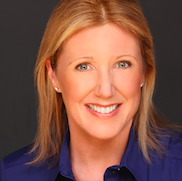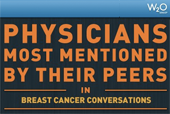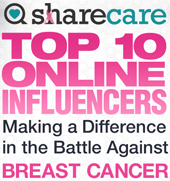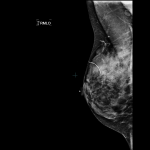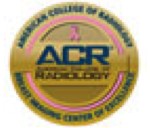When Should I Have My First Mammogram?

General Guidelines
For most women, age 40 should be when you start having yearly mammograms in order to minimize your likelihood of developing advanced breast cancer (“Government Mammography Task Force vs. You”). Some doctors send their patients for a baseline mammogram at age 35, and I wouldn’t argue with that.
Family History
If you have a strong family history of breast cancer (mother or sister), start having your mammogram 10 years younger than the age that relative was diagnosed, OR at age 40, whichever is younger. For example, if your sister had breast cancer when she was 44, you should start having your mammogram at age 34. If your mother had breast cancer at 60, you would start having your annual mammogram at age 40. If you have a strong family history or other factors that put you at high risk for breast cancer, you should also be having a breast MRI every year once you start having mammograms. Talk to your doctor about this. If your breasts are dense, you should also be having a breast ultrasound or MRI starting at age 40 (“What Breast Density Means to You”).
Breast Cancer Gene & Hodgkins Lymphoma
If you or your mother or sister have been diagnosed with the breast cancer gene (BRCA1 or BRCA2) you should begin having annual mammograms at age 25, and annual breast MRI sometimes even younger than 25. Your breast doctor should advise you on this.
If you have had Hodgkins disease (lymphoma) in the past, and were treated with radiation to your chest, you should start having annual mammograms 8 years after your treatment was completed. You should also be sent for yearly breast MRI.
Finding a Breast Lump
At any age, if you feel a breast lump or detect thickening, see your doctor immediately. They will decide if you need to have a mammogram, ultrasound, etc. If your doctor doesn’t send you for any tests, and you still feel the lump, get a second opinion.
Tags: BRCA1, BRCA2, breast cancer, breast cancer gene, breast cancer screening, breast density, breast lump, breast MRI, breast sonogram, breast ultrasound, early detection, family history of breast cancer, government task force on mammograms, high risk for breast cancer, mammogram, radiation to the chest, USPSTF

